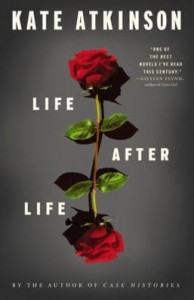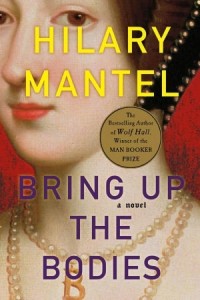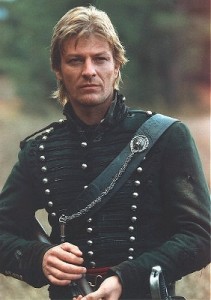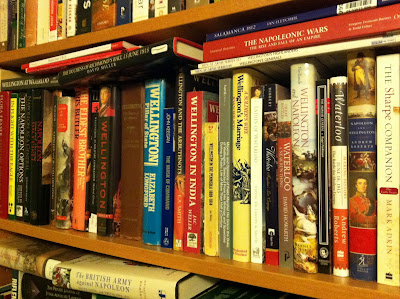Most of you who follow this blog probably know that Megan Frampton is fun and quirky, has excellent sartorial taste, and mostly wears black (presuming that those last two are not mutually exclusive). You have probably read some of her writing but, unless you’ve read it all, you don’t know the breadth of her talent. So, today, I’m going to give you a little taste.
Those of you who have been following Megan for a while, probably remember A Singular Lady, her maiden publication, a trad Regency from Signet in 2005 (right before Signet stopped publishing Trads). This is Megan’s trad voice: a bit formal with an undertone of humor, something you would definitely recognize as “Regency.”
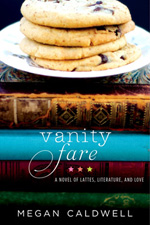 If you’re new to Megan, you might not know that she also writes women’s fiction as Megan Caldwell. Her first book, Vanity Fare, was published by William Morrow late last year. The Amazon description of Vanity Fare calls it “a charming tale of food, family, literature, and romance in which a 40-year-old newly single Brooklyn mother embarks on a culinary writing career and finds herself at the center of a deliciously tempting love triangle.” And so it is. This fun book showcases Megan’s sharp, snarky, engaging contemporary voice. This voice is highlighted in the interstitial material (a specialty of Megan’s) in which the heroine writes copy for a new bakery across from the New York Public Library, using literary references. Each chapter is headed by a bakery item such as sourdough bread called Middlestarch, The Bun Also Rises, Dorothy Parker House Rolls, Lord of the Tea Rings, Tender is the Bite, and more. This easy way with puns becomes lighter and easier in the body of the book:
If you’re new to Megan, you might not know that she also writes women’s fiction as Megan Caldwell. Her first book, Vanity Fare, was published by William Morrow late last year. The Amazon description of Vanity Fare calls it “a charming tale of food, family, literature, and romance in which a 40-year-old newly single Brooklyn mother embarks on a culinary writing career and finds herself at the center of a deliciously tempting love triangle.” And so it is. This fun book showcases Megan’s sharp, snarky, engaging contemporary voice. This voice is highlighted in the interstitial material (a specialty of Megan’s) in which the heroine writes copy for a new bakery across from the New York Public Library, using literary references. Each chapter is headed by a bakery item such as sourdough bread called Middlestarch, The Bun Also Rises, Dorothy Parker House Rolls, Lord of the Tea Rings, Tender is the Bite, and more. This easy way with puns becomes lighter and easier in the body of the book:
If he were a baked good, he’d be Irish soda bread. Not that I knew he was Irish; but I imagined he’d be delicious, filling, and packed with a few surprises. In the bread’s case, it was raisins, and I wondered what his would be: a shoe fetishist? Nah, he’d probably dismiss something like that as foolishness. A closest reader? Ditto.
An incredible lover? Now that I could see. He’d be thoughtful, unselfish, and get the job done — and done well — in as businesslike manner as possible.
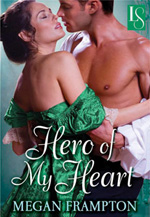 But, if you’re at this blog, you’re probably interested in Megan’s Regencies. Let’s start with Hero of My Heart, published by Loveswept in April of this year.
But, if you’re at this blog, you’re probably interested in Megan’s Regencies. Let’s start with Hero of My Heart, published by Loveswept in April of this year.
Hero of My Heart is is the story of a drug-addicted marquess and a vicar’s daughter who is being sold on the block by her no-good stepbrother. Our marquess steps in, buys the girl, and decides to save her by marrying her.
If he could just get her to Scotland, just get her to shut up for long enough to realize he was doing this for her own good, for her ultimate survival, it would be fine. He could ensure her safety, give her all his unentailed funds and property, and then disappear. It would be a final act of contrition to atone for all that he had done.
In this book, Megan serves up a well-written, Regency road story with a side of angst. Her voice is elegant and true to the period and, occasionally, we see a little hint of the irreverent contemporary author.
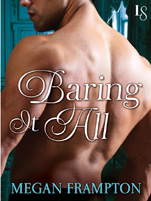 But, if you’re longing for a Regency story with a bit more of Megan’s quirky voice, I have a treat for you. In Baring it All, a Loveswept Historical short story just out this week and What Not to Bare, a full-length historical romance from Loveswept, out in October of 2013, you will find a delightful combination of well-researched Regency Historical, with the lighter voice of Megan’s contemporary novels. No, it’s not first person and no, it doesn’t sound contemporary, but you can forget about the angst and enjoy Megan’s wonderful humor.
But, if you’re longing for a Regency story with a bit more of Megan’s quirky voice, I have a treat for you. In Baring it All, a Loveswept Historical short story just out this week and What Not to Bare, a full-length historical romance from Loveswept, out in October of 2013, you will find a delightful combination of well-researched Regency Historical, with the lighter voice of Megan’s contemporary novels. No, it’s not first person and no, it doesn’t sound contemporary, but you can forget about the angst and enjoy Megan’s wonderful humor.
Baring it All is the story of a couple who have entered into an arranged betrothal. The heroine is in love with the clueless hero. The hero is… clueless.
She could almost hear the conversation: his father pronouncing at the breakfast table, “Son, you have to be married sometime, and it might as well be someone you know. Lady Violet is an excellent choice.”
To which Christian probably mumbled through his toast, “Fine, excellent. Can you pass me that notebook? I think I’ve discovered a shortcut for Pythagoras’s tetractys. Oh, and I’ll take care of that other thing next week. ” That “other thing” being asking Violet to marry him.
See? A felicitous combination of a solid grounding in the period with Megan’s witty voice. This, and What Not to Bare are a new voice for Megan that I think you’re going to love.

